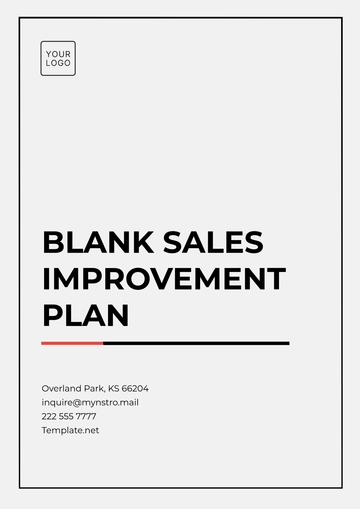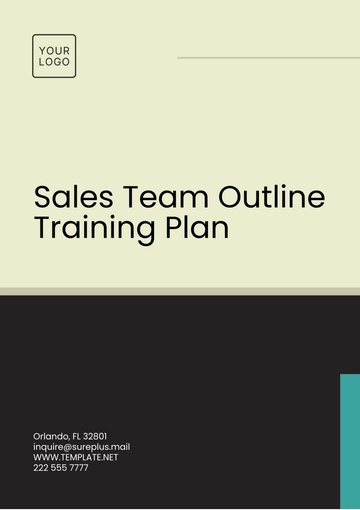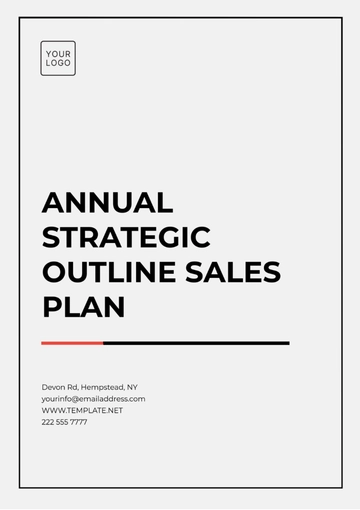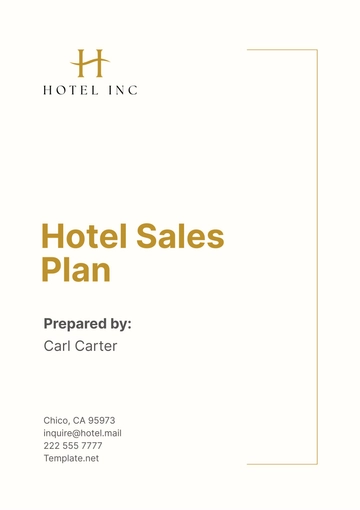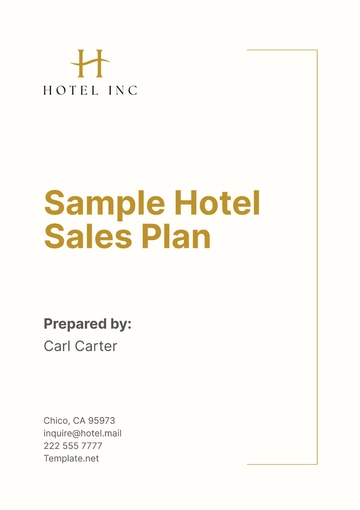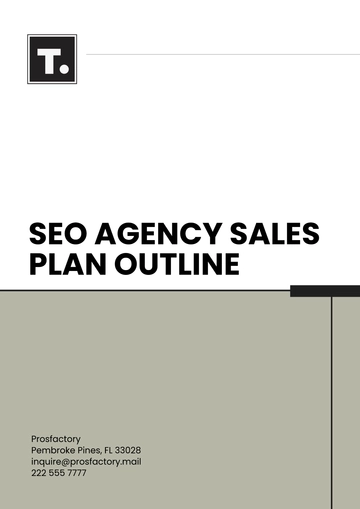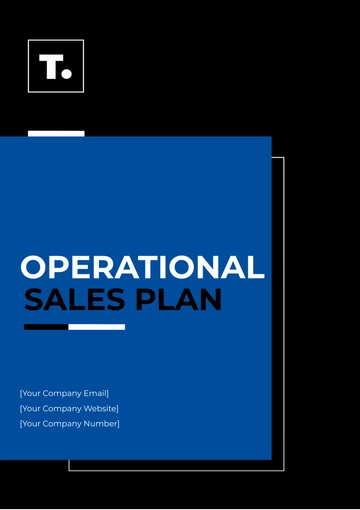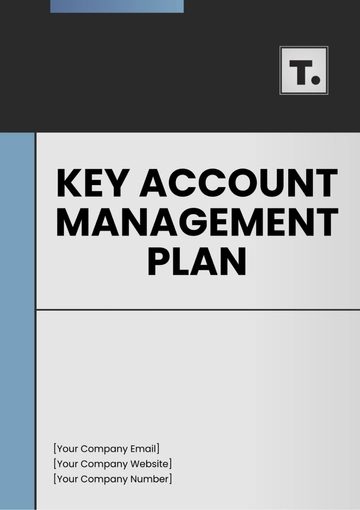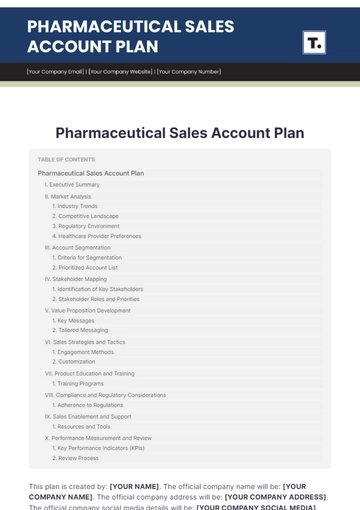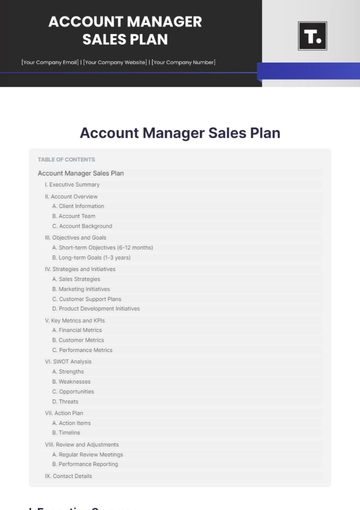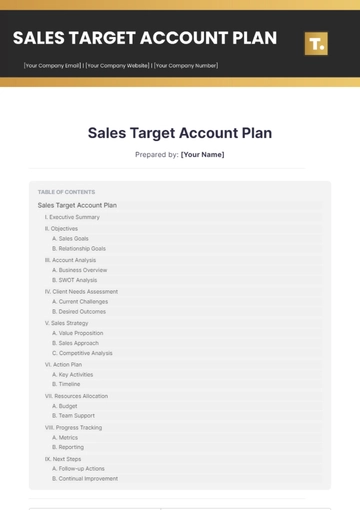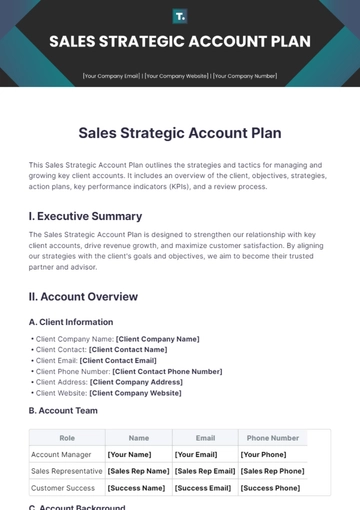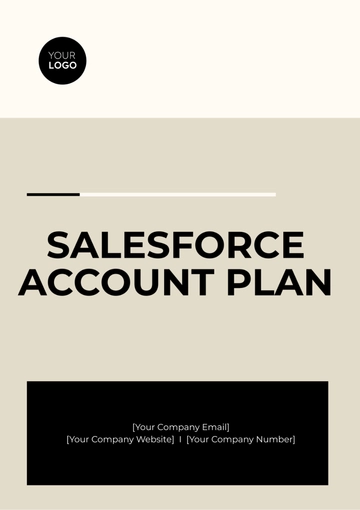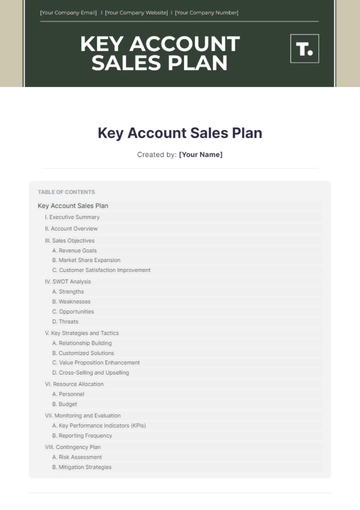Free Sales Plan
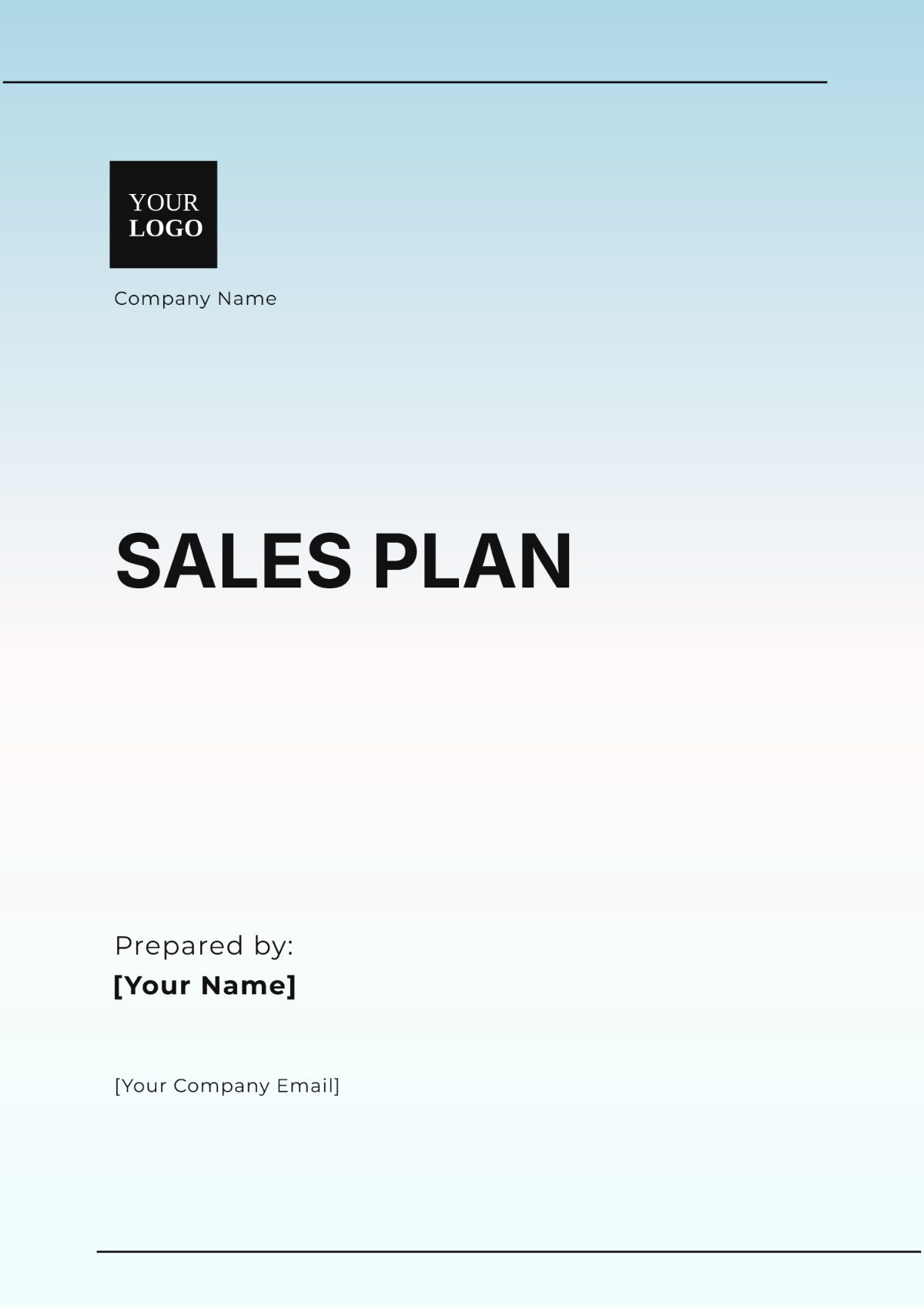
I. Executive Summary
Company Overview
[YOUR COMPANY NAME] is a leading provider of innovative software solutions tailored for small to mid-sized businesses.
Mission Statement
Our mission is to empower businesses through cutting-edge technology that drives efficiency and growth.
Sales Goals
We aim to achieve $5 million in annual sales revenue, expand our market share by 20%, and enhance customer retention by 15%.
II. Market Analysis
Target Market
Our primary focus is on small to mid-sized businesses operating within the technology, finance, and healthcare sectors.
Market Trends
The current market trends indicate a growing demand for automation and AI-driven solutions, an increased focus on data security, and a shift towards remote and hybrid work environments.
Competitive Landscape
Our main competitors include Prime Software, Tech Innovators Inc., and Global Solutions LLC. [YOUR COMPANY NAME] distinguishes itself through superior customer support and highly customizable solutions.
III. Unique Value Proposition
Product Differentiation
Our software solutions provide unmatched customization options, integrated AI capabilities, and a user-friendly interface.
Customer Service Excellence
We offer 24/7 customer support, along with dedicated account managers for personalized service.
Proven ROI
Our clients typically report a 25% increase in productivity within the first year of implementation.
IV. Sales Objectives
Revenue Goals: Our goal is to achieve $5 million in sales over the next year.
Market Expansion: We plan to expand into two new markets: the USA's West Coast and Southeast Asia.
Customer Retention: We aim to increase our customer retention rate from 70% to 85%.
V. Sales Strategies
Market Penetration
We plan to increase our market share in existing markets through targeted marketing campaigns and competitive pricing.
Product Development
We will introduce new features based on customer feedback to meet evolving market needs.
Partnerships and Alliances
We will form strategic alliances with complementary businesses to expand our reach and enhance our offerings.
VI. Sales Tactics
Lead Generation
We will employ a mix of inbound marketing (content marketing, SEO, social media) and outbound marketing (email campaigns, cold calling).
Sales Funnel Optimization
We will implement a CRM system to track leads, manage customer relationships, and streamline the sales process.
Training and Development
Our sales team will undergo regular training sessions to stay updated on product features, market trends, and advanced sales techniques.
Customer Engagement
We will host webinars, workshops, and user conferences to engage with customers and showcase product updates.
VII. Sales Team Structure
Sales Manager
The Sales Manager will oversee the sales team, set goals, and monitor performance.
Account Executives
Account Executives will be responsible for closing deals and managing client relationships.
Sales Development Representatives (SDRs)
SDRs will focus on lead generation and initial client contact.
Customer Success Managers
Customer Success Managers will ensure customer satisfaction and retention post-sale.
VIII. Sales Metrics and KPIs
Revenue Growth
Lead Conversion Rate
Customer Acquisition Cost (CAC)
Customer Lifetime Value (CLV)
Sales Cycle Length
IX. Budget Allocation
"Budget Allocation Sales for upcoming years"
Marketing Expenses
A budget will be allocated for digital marketing, events, and promotional activities.
Sales Tools and Software
We will invest in CRM systems, analytics tools, and other sales enablement software.
Training and Development
We will allocate a budget for ongoing training programs and sales workshops.
Personnel Costs
Salary and commission structures will be established for the sales team.
X. Implementation Timeline
Q1: Finalize the sales plan, train the sales team, and launch initial marketing campaigns.
Q2: Enter new markets, begin partnership negotiations, and introduce new product features.
Q3: Assess progress, optimize strategies based on performance metrics, and host customer engagement events.
Q4: Review annual performance, adjust goals for the following year, and celebrate achievements with the team.
- 100% Customizable, free editor
- Access 1 Million+ Templates, photo’s & graphics
- Download or share as a template
- Click and replace photos, graphics, text, backgrounds
- Resize, crop, AI write & more
- Access advanced editor
Boost your sales strategy with Template.net's Sales Plan Template. Fully editable and customizable, this template is designed for flexibility and ease of use. Easily personalize every detail using our AI Tool to craft the perfect plan tailored to your business needs. Achieve your goals with precision and efficiency.
You may also like
- Finance Plan
- Construction Plan
- Sales Plan
- Development Plan
- Career Plan
- Budget Plan
- HR Plan
- Education Plan
- Transition Plan
- Work Plan
- Training Plan
- Communication Plan
- Operation Plan
- Health And Safety Plan
- Strategy Plan
- Professional Development Plan
- Advertising Plan
- Risk Management Plan
- Restaurant Plan
- School Plan
- Nursing Home Patient Care Plan
- Nursing Care Plan
- Plan Event
- Startup Plan
- Social Media Plan
- Staffing Plan
- Annual Plan
- Content Plan
- Payment Plan
- Implementation Plan
- Hotel Plan
- Workout Plan
- Accounting Plan
- Campaign Plan
- Essay Plan
- 30 60 90 Day Plan
- Research Plan
- Recruitment Plan
- 90 Day Plan
- Quarterly Plan
- Emergency Plan
- 5 Year Plan
- Gym Plan
- Personal Plan
- IT and Software Plan
- Treatment Plan
- Real Estate Plan
- Law Firm Plan
- Healthcare Plan
- Improvement Plan
- Media Plan
- 5 Year Business Plan
- Learning Plan
- Marketing Campaign Plan
- Travel Agency Plan
- Cleaning Services Plan
- Interior Design Plan
- Performance Plan
- PR Plan
- Birth Plan
- Life Plan
- SEO Plan
- Disaster Recovery Plan
- Continuity Plan
- Launch Plan
- Legal Plan
- Behavior Plan
- Performance Improvement Plan
- Salon Plan
- Security Plan
- Security Management Plan
- Employee Development Plan
- Quality Plan
- Service Improvement Plan
- Growth Plan
- Incident Response Plan
- Basketball Plan
- Emergency Action Plan
- Product Launch Plan
- Spa Plan
- Employee Training Plan
- Data Analysis Plan
- Employee Action Plan
- Territory Plan
- Audit Plan
- Classroom Plan
- Activity Plan
- Parenting Plan
- Care Plan
- Project Execution Plan
- Exercise Plan
- Internship Plan
- Software Development Plan
- Continuous Improvement Plan
- Leave Plan
- 90 Day Sales Plan
- Advertising Agency Plan
- Employee Transition Plan
- Smart Action Plan
- Workplace Safety Plan
- Behavior Change Plan
- Contingency Plan
- Continuity of Operations Plan
- Health Plan
- Quality Control Plan
- Self Plan
- Sports Development Plan
- Change Management Plan
- Ecommerce Plan
- Personal Financial Plan
- Process Improvement Plan
- 30-60-90 Day Sales Plan
- Crisis Management Plan
- Engagement Plan
- Execution Plan
- Pandemic Plan
- Quality Assurance Plan
- Service Continuity Plan
- Agile Project Plan
- Fundraising Plan
- Job Transition Plan
- Asset Maintenance Plan
- Maintenance Plan
- Software Test Plan
- Staff Training and Development Plan
- 3 Year Plan
- Brand Activation Plan
- Release Plan
- Resource Plan
- Risk Mitigation Plan
- Teacher Plan
- 30 60 90 Day Plan for New Manager
- Food Safety Plan
- Food Truck Plan
- Hiring Plan
- Quality Management Plan
- Wellness Plan
- Behavior Intervention Plan
- Bonus Plan
- Investment Plan
- Maternity Leave Plan
- Pandemic Response Plan
- Succession Planning
- Coaching Plan
- Configuration Management Plan
- Remote Work Plan
- Self Care Plan
- Teaching Plan
- 100-Day Plan
- HACCP Plan
- Student Plan
- Sustainability Plan
- 30 60 90 Day Plan for Interview
- Access Plan
- Site Specific Safety Plan


